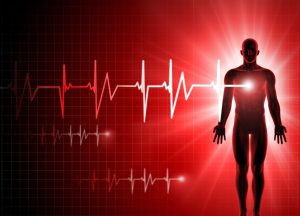The Role of the Nervous System in Neuropathy and Dystonia Explained

The human nervous system is a vast communication network that controls movement, sensation, and countless bodily functions. When disruptions occur within this system, the results can be life-changing. Two conditions that highlight how vulnerable the nervous system can be are neuropathy and dystonia. Although they affect the body in different ways, both are rooted in neurological dysfunction. Understanding how the nervous system contributes to these disorders can help patients better recognize their challenges and seek effective care from specialists such as South Valley Neurology.
How the Nervous System Works
It is made up of the brain, spinal cord, and a lot of nerves that run along the edges of the body. These components send signals that regulate muscle contractions, sensory input, and reflexes. In healthy individuals, this system allows seamless communication between the brain and the rest of the body. However, when nerve damage or abnormal signaling occurs, conditions like neuropathy and dystonia can develop.
Neuropathy: Disrupted Nerve Signaling
When peripheral nerves are damaged, neuropathy happens. This makes it hard for the nervous system to talk to muscles, skin, or organs. This can result from diabetes, infections, autoimmune diseases, or injuries.
Common Neuropathy Symptoms
- Tingling or burning sensations in the hands or feet
- Numbness or loss of sensation
- Weakness or difficulty moving limbs
- Heightened sensitivity to touch
Because the condition is rooted in nerve dysfunction, neuropathy often develops gradually and worsens over time. Identifying these neuropathy symptoms early is crucial for slowing progression and maintaining quality of life.
Dystonia: Misfiring Brain Signals
While neuropathy stems from nerve damage, dystonia originates in the brain’s motor pathways, particularly in regions that regulate muscle movement. The condition causes muscles to contract involuntarily, leading to twisting, repetitive movements, or abnormal postures.
Typical Symptoms of Dystonia
- Involuntary muscle spasms in the neck, face, hands, or trunk
- Cramping or aching muscles that worsen with activity
- Uncontrolled blinking or facial movements
- Abnormal postures that can interfere with daily tasks
These symptoms of dystonia often emerge gradually and may worsen under stress or fatigue. Unlike neuropathy, dystonia does not involve nerve damage but rather irregular communication within the brain’s movement-control centers.
Comparing Neuropathy and Dystonia
Though they arise from different dysfunctions within the nervous system, neuropathy and dystonia can both disrupt mobility and independence. Neuropathy primarily affects sensory and motor nerves, often causing pain and numbness, while dystonia is a movement disorder marked by involuntary contractions. Both conditions highlight the delicate balance of nerve signaling and muscle control, underscoring the importance of neurological expertise in diagnosis and treatment.
Diagnosis and Treatment
Specialists at South Valley Neurology often rely on detailed patient histories, neurological exams, and advanced imaging or nerve studies to identify these disorders. There isn’t a single cure, so treatment works on managing symptoms and making life better.
- For Neuropathy: medications for pain relief, physical therapy, and addressing underlying causes such as diabetes.
- For Dystonia: Botulinum toxin injections, pills, physical treatment, and sometimes deep brain stimulation are all options.
By tailoring treatments to each individual’s nervous system challenges, neurologists can significantly reduce the impact of these disorders.
Living with Neuropathy or Dystonia
Patients facing neuropathy or dystonia often benefit from lifestyle adjustments such as stress management, gentle exercise, and supportive therapies. Education is equally important—understanding how the nervous system drives these conditions empowers patients to recognize them early.
Final Thoughts
The nerve system is at the center of everything we do and feel. Neuropathy and dystonia are two diseases that happen when the brain’s delicate pathways are harmed. Each has its own set of problems. Neuropathy symptoms and dystonia symptoms can be distinguished, which can help with a faster diagnosis and better treatment. Clinics like South Valley Neurology are very important for helping people with these difficult neurological diseases. They do this by providing both expert and caring care that makes people’s lives better.





